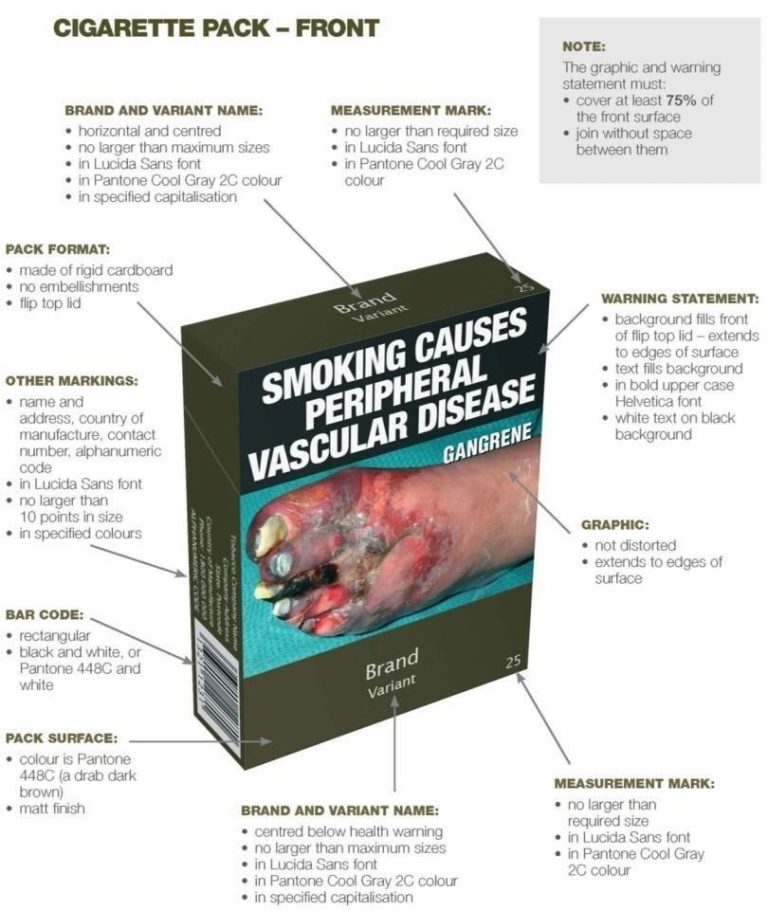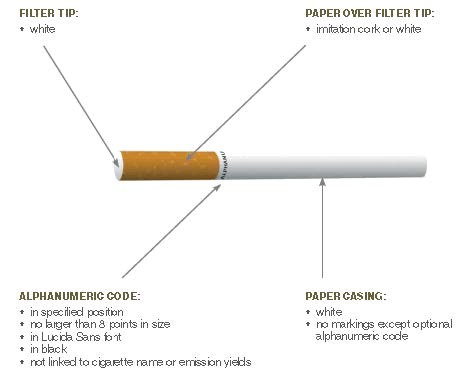WTO Stomps Out Challenges to Australia's Tobacco Plain Packaging Laws
The World Trade Organization (WTO) awarded Australia a big victory over the challenges to its plain packaging laws for tobacco products by a handful of tobacco producing countries. After a seven year fight, the WTO rejected the arguments that plain packaging laws infringed on trademarks and intellectual property rights.
In December 2011, the Australian government proposed the Tobacco Plain Packaging Act that eventually came into law on December 2012. Among other things, the law banned trademarks, logos, and distinctive colored packaging on cigarettes, cigars, and other tobacco products. Tobacco product packages are now required to come in a matte “drab dark brown” package with brand names, variant names, country of origin, and manufacturer contact details printed in small standardized fonts. Moreover, cigarette packs cannot include inserts or onserts. The packaging must also include a graphic health warning that covers 75% of the front and 90% of the back. An example of the required tobacco packaging is shown below.

The law also regulated the appearance of the tobacco products themselves and prescribed that cigarettes must be white and may include an imitation cork tip that is printed brown but cannot display trademarks, geographical indications, or any other marking other than an alphanumeric code for product identification purposes.

Penalties for selling, purchasing (unless for personal use), and manufacturing non-compliant products include civil and even criminal sanctions.
The purpose of the law is to deter users from consuming tobacco products and is backed by studies showing that plain packaging laws are successful in that goal.
On September 20, 2013, Indonesia requested a consultation in the WTO and alleged that the Australian law was inconsistent with Australia’s obligations under the WTO’s Technical Barriers to Trade (TBT Agreement), the Trade-Related Aspects of Intellectual Property Rights Agreement (TRIPS), and the General Agreement on Tariffs and Trade (GATT) 1994. Ukraine, Honduras, the Dominican Republic, and Cuba joined the challenge, with Ukraine dropping out in May 2016. These countries argued that the ban on the use of trademarks on packaging infringed intellectual property rights and set a dangerous precedent for banning branding on other consumer products. It should be noted that many other countries also participated as third parties and made arguments both for and against the laws.
On June 28, 2018, the WTO ruled that Australia’s tobacco plain packaging (TPP) law was more effective, and not more trade restrictive than necessary, when compared to alternative policies to promote public health by reducing smoking. The Panel rejected arguments that the laws unjustifiably infringed tobacco trademarks (TRIPS) and violated intellectual property rights or that Australia might have instituted less trade-restrictive alternatives (TBT Agreement).
The WTO analysis to determine whether a technical regulation is more trade-restrictive than necessary considers alternative measures identified by the challenger to the regulation (referred to as “the complainant”), and whether the alternatives are (i) less trade-restrictive, (ii) make an equivalent contribution to the relevant objective, and (iii) are reasonably available. The initial burden rests with the complainant. Here, the complainants offered four alternative measures: (1) increasing the minimum legal purchasing age to 21 years; (2) improving social marketing campaigns; (3) increasing taxation on tobacco products, and (4) adopting a “pre-vetting mechanism.” Following a lengthy analysis, the WTO ruled that these alternatives would not be less trade-restrictive than Australia’s plain packaging laws and that they would not be as effective in reducing tobacco consumption.
Other countries, including New Zealand, Hungary, Ireland, France, Norway, and the United Kingdom, have adopted similar legislation following Australia’s lead. This latest ruling from the WTO paves the way for other countries to adopt similar laws. Indeed, similar laws are already pending in Canada, Thailand, Burkina Faso, Georgia, Romania, and Slovenia. Meanwhile, countries like Belgium, Columbia, India, Panama, Malaysia, Turkey, and Singapore do not yet have pending TPP regulations, but are considering them. While the ruling will likely be appealed, the tobacco industry’s trademark portfolio and branding campaign took a major step back with this decision.
The WTO’s ruling could have an impact on other industries as well. Similar laws for producers of unhealthy foods and alcohol could be on the horizon.
Despite the requirement that an appeal be decided within 90 days, the complexity of the dispute and the history of extensions at the appellate level indicate that an appeal could take years to resolve. Regardless, Australia has already stated that it is ready to contest an appeal in an effort to protect the health of Australians.




